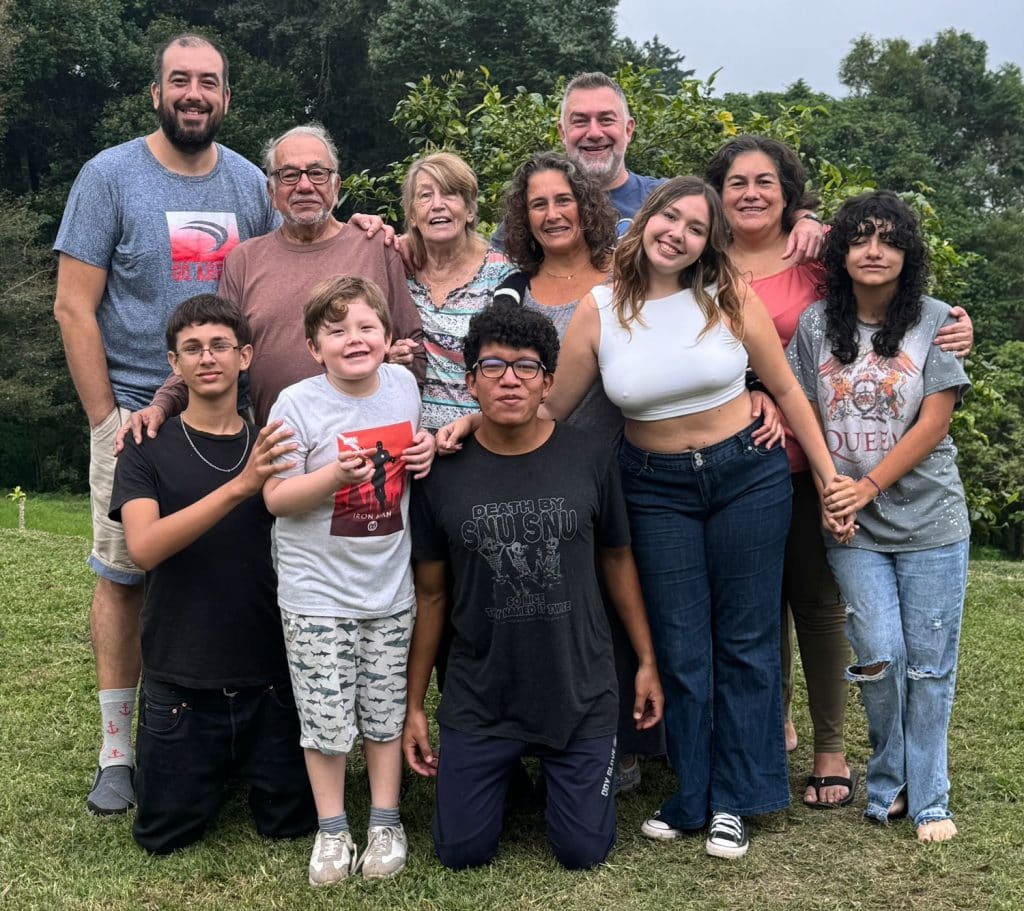*Editor’s Note: The “Views from NAU” blog series highlights the thoughts of different people affiliated with NAU, including faculty members sharing opinions or research in their areas of expertise. The views expressed reflect the authors’ own personal perspectives.
By Marco Cabrera Geserick
Assistant Professor, Comparative Cultural Studies
Coordinator, Latin American Studies Program
I was born an immigrant. At least that is how I see it. My father was born in Guatemala but was forced to abandon that country when he was very young. In the 1950s, Guatemalans dared to dream of a better future, but the United States government intervened to destroy a nascent democratic experiment and instead force a long military dictatorship. My father left Guatemala as a child and adapted to his new homeland in Costa Rica. My mother was born at the end of World War II, in what was once Germany, now a small town on the border between Lithuania and Russia. She traversed her country before she was born as my pregnant grandmother was forced to escape Berlin due to heavy bombardment. My mother, like my father, suffered from forced migrations; internal migrations are also traumatic.
I have a mixed background, which is not strange for a Latin American. Most of us are a mix of varying proportions of Indigenous, European and African backgrounds. Then, you must add more recent migrations from East Asia, the Middle East and Europe. We are a real melting pot of genetics and cultures. My mixed background, and the fact that neither of my parents were born in Costa Rica, the country I grew up in, meant I was not prepared when encountering Costa Rican culture. Religious rituals, national civil ceremonies and holidays were all puzzling for me. I developed questions about why societies choose one or another hero to celebrate, which values those heroes represent and how legends and myths are created and shaped into national narratives. It was precisely my mixed background that allowed me to become an insider/outsider: familiar enough with what I observed and distant enough to be critical about it. Not surprisingly, this topic became my main research interest as a scholar. Not in vain Gabriel García Márquez, the Colombian Nobel Prize winner, observed that all writing is biographical.
This critical perspective surfaced immediately when I was approached to write a short article commemorating Hispanic Heritage Month. Skeptical (or cynical if you want) as I am, I realized that this celebration was atole con el dedo, an overture of inclusion by a society that tends to subtly reject those not part of a perceived Anglo-Saxon Protestant mainstream. Invented, as all racial narratives in the U.S. are, the term Hispanic suggests one is an outsider, an interloper, or at best, a newcomer. And still, we carry the genes and culture, even if partially, of the original inhabitants of the Americas. We also carry the genes and culture of the first European permanent colonizers of what today is the U.S. and Canada. Everywhere from Florida to California, from El Paso to St. Louis, and in areas like British Columbia and South Carolina, Spanish was spoken long before English was. “We did not cross the border,” I have heard some people in the Southwest say, “the border crossed us.” Hispanic Heritage Month is based on the assumption that the history of the U.S. begins with the arrival of religious extremists from England. It should rightfully begin with the history of the Indigenous peoples that have been here for thousands of years, followed by the Spanish and French colonizers who arrived here before the British. What should be recognized is that we are here, we have been here, we will be here.



